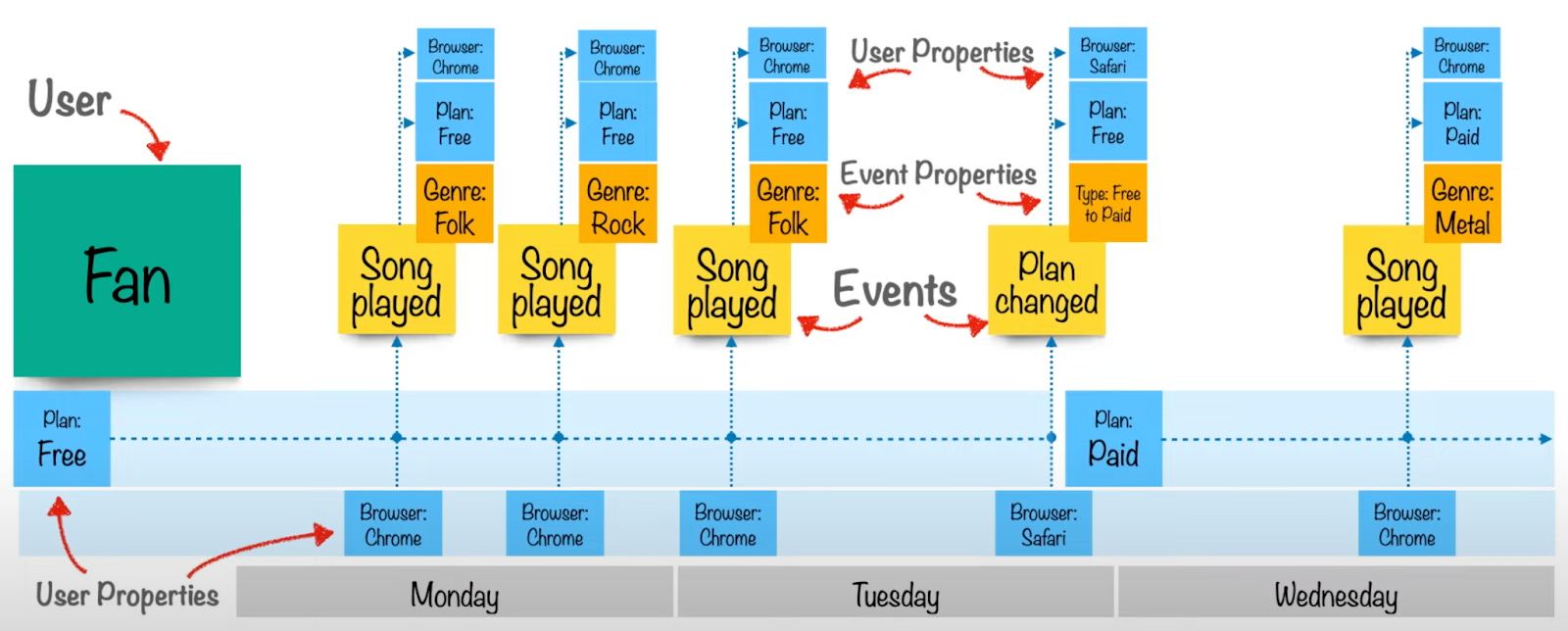Understanding the intricacies of Google Analytics is crucial for any marketer or website owner looking to improve their digital presence. One such metric that often baffles individuals is the concept of event count. So, what does event count mean in Google Analytics? This blog will delve deep into deciphering this mystery and shed light on how event count impacts your website’s performance tracking. By demystifying the significance of event count, you will be equipped to make informed decisions to optimize your website’s user experience and attain your desired goals. Let’s unravel the mysteries together and harness the power of event count in Google Analytics!
Understanding Event Tracking in Google Analytics
Event tracking in Google Analytics provides insights into how users interact with the content on your website. It allows you to track specific user actions, such as button clicks, video plays, form submissions, downloads, and more, that are not automatically tracked as pageviews.
Importance of Event Tracking
By implementing event tracking, you can measure the effectiveness of your website’s features and elements that lead to conversions. This detailed data helps you optimize your website for better user experience and higher conversion rates.
Understanding what does event count mean in Google Analytics is crucial for analyzing user behavior and making informed decisions to enhance your website’s performance.
Setting Up Event Tracking
To start tracking events, you need to add event tracking code to your website. This code snippet captures specific interactions and sends the data to Google Analytics for reporting. It’s essential to define the events you want to track and set them up correctly for accurate data collection.
- Analyze Event Categories: Categorize events based on user interactions to organize and analyze the data effectively.
- Event Actions and Labels: Define the actions users take and assign labels for detailed tracking.
- Event Value: Assign a value to events to measure their impact on conversions and revenue.

Importance of Event Count in Analytics
Understanding what event count means in Google Analytics is crucial for businesses looking to make data-driven decisions. Event count refers to the total number of interactions or actions users take on a website or app, such as clicks, downloads, form submissions, and video views. By tracking event counts, businesses can gain valuable insights into user behavior, engagement levels, and the effectiveness of their marketing efforts.
The Role of Event Count in User Engagement
Event count metrics provide businesses with a deeper understanding of user engagement. By analyzing the frequency and types of events happening on their platforms, businesses can identify popular content, features, or products that resonate with their audience. This information can help in tailoring marketing strategies to optimize user engagement and drive conversions. Enhanced engagement leads to higher retention rates and improved customer loyalty.
Event Count and Conversion Tracking
Tracking event counts is essential for monitoring and improving conversion rates. By analyzing events that lead to conversions, businesses can identify the most effective conversion paths and optimize their websites or apps accordingly. Moreover, understanding which events contribute most significantly to conversions can help in allocating resources more effectively and improving overall ROI.
Factors Influencing Event Count
Event count in Google Analytics is a crucial metric that provides insights into user interactions on a website or app. Understanding the factors that influence event count can help marketers optimize their strategies for better performance.
Website Design and User Experience
The design and user experience of a website play a significant role in determining the event count. A user-friendly interface with clear call-to-action buttons can lead to higher engagement levels and increased event counts.
Ensuring a responsive design for mobile devices is essential as mobile users account for a large portion of online traffic in the present year.
Content Quality and Relevance
High-quality and relevant content is key to attracting and retaining user interest, leading to more interactions and events. Tailoring content to match user intent and providing valuable information can positively impact event counts.
Using multimedia elements like videos and infographics can also enhance user engagement and contribute to higher event counts.
Technical Performance and Loading Speed
The technical performance of a website, including loading speed and server response time, can affect user behavior and event counts. Slow-loading pages or frequent downtimes may deter users from interacting further, thereby reducing event counts.
Optimizing website speed and performance through techniques like image optimization and caching can help improve user experience and boost event counts.

Interpreting Event Count Data
Understanding what event count means in Google Analytics is crucial for businesses to analyze user interactions effectively. Event count refers to the number of times a specific event is triggered on a website, such as button clicks, video plays, form submissions, or downloads.
Importance of Event Tracking
By tracking events, businesses can gain insights into user behavior, engagement levels, and overall website performance. This data can help in optimizing marketing strategies, improving user experience, and increasing conversion rates.
Utilizing event tracking allows businesses to measure the success of their campaigns, identify popular content, and understand how users interact with different elements on their site.
Interpreting Event Count Metrics
When analyzing event count data in Google Analytics, it is essential to look at the total number of events recorded over a specific period. Comparing event counts across different time frames can help identify trends, spikes, or dips in user engagement.
**Pay attention to unique event counts to understand the number of individual users who triggered specific events, providing insights into user engagement and interactions on the site.
**Always take into account the context and goals of your website when interpreting event count data to make informed decisions and optimize your digital marketing strategies.
Optimizing Event Tracking Strategies
Event tracking in Google Analytics is crucial for understanding user interactions on your website. Optimizing your event tracking strategies can provide valuable insights into user behavior and help you make informed decisions to improve your website’s performance.
Setting Clear Goals
Before implementing event tracking, define clear goals for the events you want to track. Whether it’s monitoring button clicks, form submissions, or video views, having specific objectives will help you tailor your tracking strategy effectively.
Utilizing Google Tag Manager
Google Tag Manager simplifies the process of adding and updating event tracking codes on your website. By utilizing GTM, you can efficiently manage your tracking tags without the need for manual code changes, ensuring accurate data collection.

Frequently Asked Questions
-
- What is Event Count in Google Analytics?
- Event Count in Google Analytics refers to the total number of times a specific event has been triggered on a website or app. Events can include actions like clicks on buttons, downloads, form submissions, video plays, and more.
-
- How is Event Count useful in Google Analytics?
- Event Count is useful in Google Analytics as it helps website owners and marketers understand user interactions and engagement with specific elements on their site. By tracking event counts, they can measure the effectiveness of various features and campaigns.
-
- How can I view Event Count data in Google Analytics?
- You can view Event Count data in Google Analytics by navigating to the ‘Behavior’ section and then clicking on ‘Events’. Here, you can see the total number of events, event categories, event actions, and more.
-
- What insights can Event Count provide in Google Analytics?
- Event Count can provide insights into user behavior patterns, popular content or features on a website, effectiveness of marketing campaigns, and user engagement levels. This data can help in making informed decisions for optimization and improvement.
Unlocking the Secrets of Event Count in Google Analytics
As we conclude our exploration into the realm of Google Analytics’ event count, it becomes evident that this metric holds immense value in understanding user interactions on your website. Event count provides crucial insights into user engagement, helping you optimize your digital strategy effectively.
By analyzing event count data, you can track user actions, measure conversion rates, and improve overall user experience. Remember, a high event count doesn’t always indicate success; the context and type of events matter significantly.
So, the next time you delve into your Google Analytics dashboard, pay close attention to the event count metric. It holds the key to unlocking valuable information that can propel your online presence to new heights.
Empower your decision-making with data-driven strategies and watch your digital efforts flourish!

